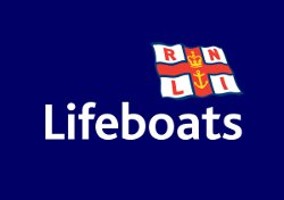The RNLI is likely to lose touch with “over 500,000 valued supporters”, as part of its move to opt-in communications, the charity’s head of funding said today.
Speaking at the Institute of Fundraising’s Individual Giving Conference in London this morning, Tim Willett said that while there had been many positives from the organisation’s first year of moving towards opt-in with existing donors, it is still likely to lose over half a million supporters.
“We are likely to lose touch with over 500,000 valued supporters. That’s very difficult for me to live with,” said Willett. “I know that these people have supported us in the past and, ultimately, they’d like to have supported us in the future.”
He said that some of them had been “very vocal” in giving reasons as to why they would no longer support the organisation. He said that he and his team were trying to learn from this.
“Some of those 500,000 who have been very vocal and told us they will not support us. It’s great to see though, because this move to opt-in was all about choice. It was about giving control back to our supporters, and about telling us why they wouldn’t support us in the future.”
Willett also said that growing attrition rates continue to be an issue for the RNLI. He said while he was hopeful that opt-in would in fact fix this issue, he said he wasn’t entirely sure what to do in the event that it doesn’t.
“We have a problem with attrition rates – they’ve been going up for some time and we’re hoping that this move to opt-in will help us address that. However we have to be prepared for those attrition rates to continue going up, and that will be a real problem in an opt-in world. How do you replace those people leaving your database? What do we do about that in the future?
“How do you gain new supporters – because in an opt-in world, you can’t mail people who you don’t know, because they haven’t opted in. How do we go about doing that in the future?”
He said that the sector needed to create a “new world of fundraising” and leave behind the practices of the past.
“We’re going to have to create a new world of fundraising, but it shouldn’t be just about recreating the old world. This is not about just growing another large database of opted-in supporters. We have to be aware that we’re creating a new future and that’s hard and difficult and, for the moment, it’s undefined.”
Willett said that the effects of the organisation’s move to opt-in in terms of its legacy income has yet to become apparent. Willett also said that the £35.6m figure he quoted last year was still “sitting on his shoulder” and had not changed.
'60 per cent ahead of target’
Despite highlighting some issues, Willett said that he and the entire organisation were incredibly optimistic about opt-in, and said the best part of 400,000 existing supporters have opted in.
“As of this week we are just shy of 400,000 opted-in supporters. I’m delighted, the team has worked incredibly hard and the campaign they’ve put together has been incredibly successful,” said Willett. “What’s more, we’re not at the end yet. The third wave of activity is going live as we speak, and we’re expecting those numbers to grow."
Willett said the figure put the RNLI 60 per cent ahead of its original target of having 225,000 supporters opted-in by this point in time.
Willett said the RNLI had also seen a number of new supporters come on board through its first opt-in campaign, which he said showed that the general public was open to this method of communication.
Willett was keen to stress that, for organisations pondering a move toward opt-in, there is no silver bullet. He said that the proper wording of each communication “must be unique” to the individual organisation because “you only get one shot at moving to opt-in, so beware”.
Related articles












